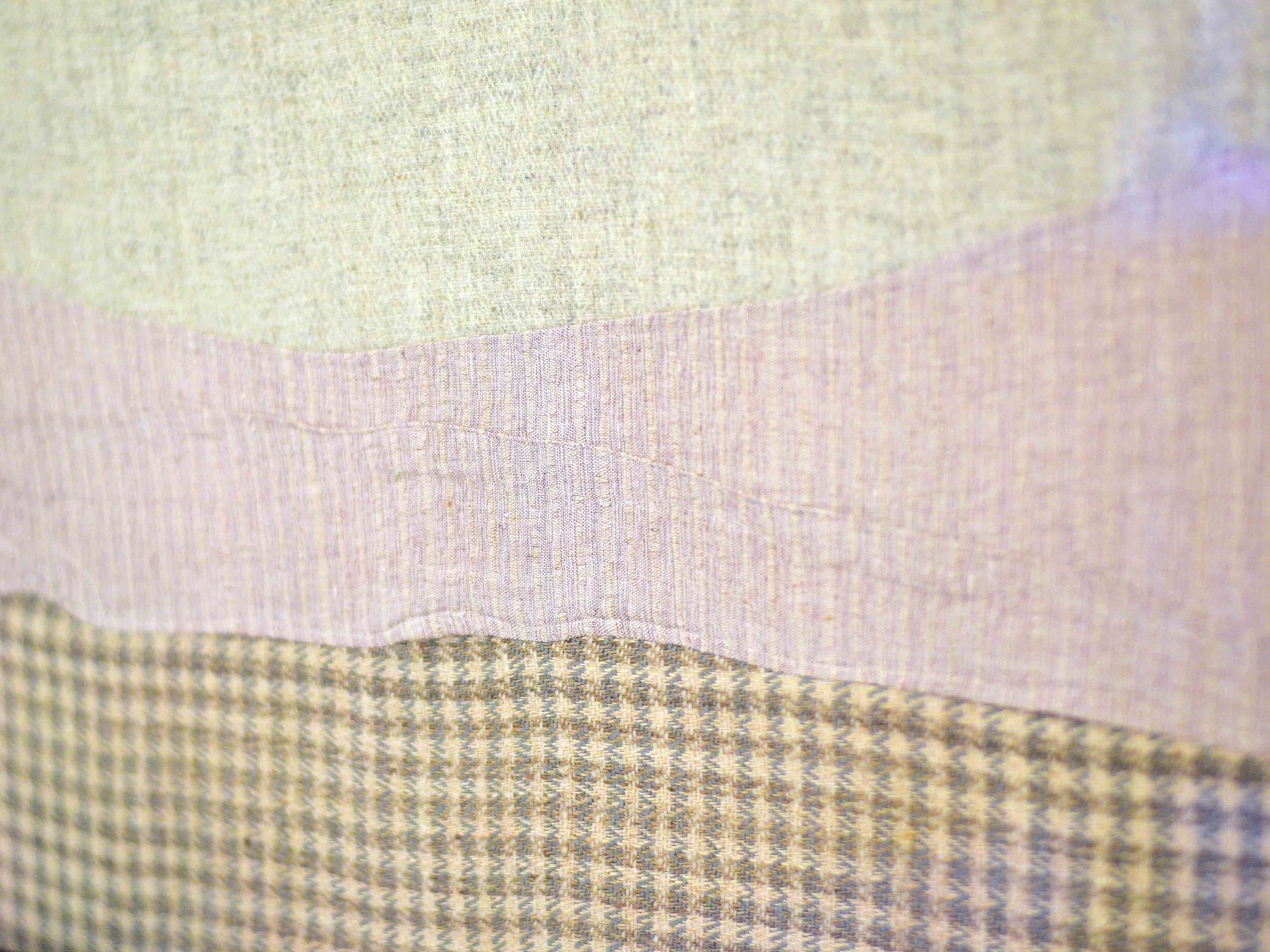Jessy Phillips
Jessy grew up in Beijing and studied penguin foraging behaviour during her DPhil in Zoology, during which she spent seven weeks camping on the Antarctic Peninsula tracking penguins.
Now she works as a Community Support Specialist at the NGO Ocean Networks Canada in Victoria, British Colombia, where she supports community-based ocean science monitoring. In her free time, she loves climbing rocks, camping, and making pottery. While conducting fieldwork in Antarctica during her Rhodes Scholarship, she became fascinated by the landscapes that consist mostly of rocks and mountains, ice shelves and glaciers, and the sea.
Entangled Threads: Rough Terrain
As a Rhodes scholar, Jessy Phillips studied penguin foraging behaviour in Antarctica. During this time, she became fascinated by the landscapes that consist mostly of rocks and mountains, ice shelves and glaciers, and the sea. This artwork reflects Jessy’s passion for the Antarctic scenery.
Nicola Green was inspired by the history of Romantic landscape paintings that explore the duality of the idyllic beauty and the uncontrollable cataclysmic power of nature. However, rather than create a naturalistic rendition of the landscape, Nicola has sourced textiles that invoke the colours and textures of the environment. The focus on the tactile qualities of the fabrics is designed to illustrate the peninsula’s rough and rugged terrain and to emphasise the lack of human presence in the vast polar desert.
Jessy hopes for a change in the way that masculinity is associated with Antarctic exploration. It was therefore important to Nicola to use a technique traditionally associated with the feminine and the domestic. This piece was constructed in the Jogakbo/chogak po style of Korean Pojagi patchwork, to celebrate crafts that have historically been considered inferior due to the marginalisation of women’s work.
Tapestry: Pristine
This depicts Antarctic ice, which is studied by researchers to understand climate change and the potentially irreversible damage which directly contributes to rising sea levels. Nicola has created this bespoke pattern inspired by the visual structures that occur organically in nature.
For Jessy, the question of colonialism’s legacy is an uncomfortable one, especially when confronting the political aspects of Antarctic research. While the Antarctic Treaty System, signed in 1959, currently shields the continent from political occupation and natural resource extraction, a renegotiation could have devastating consequences for the continent.



